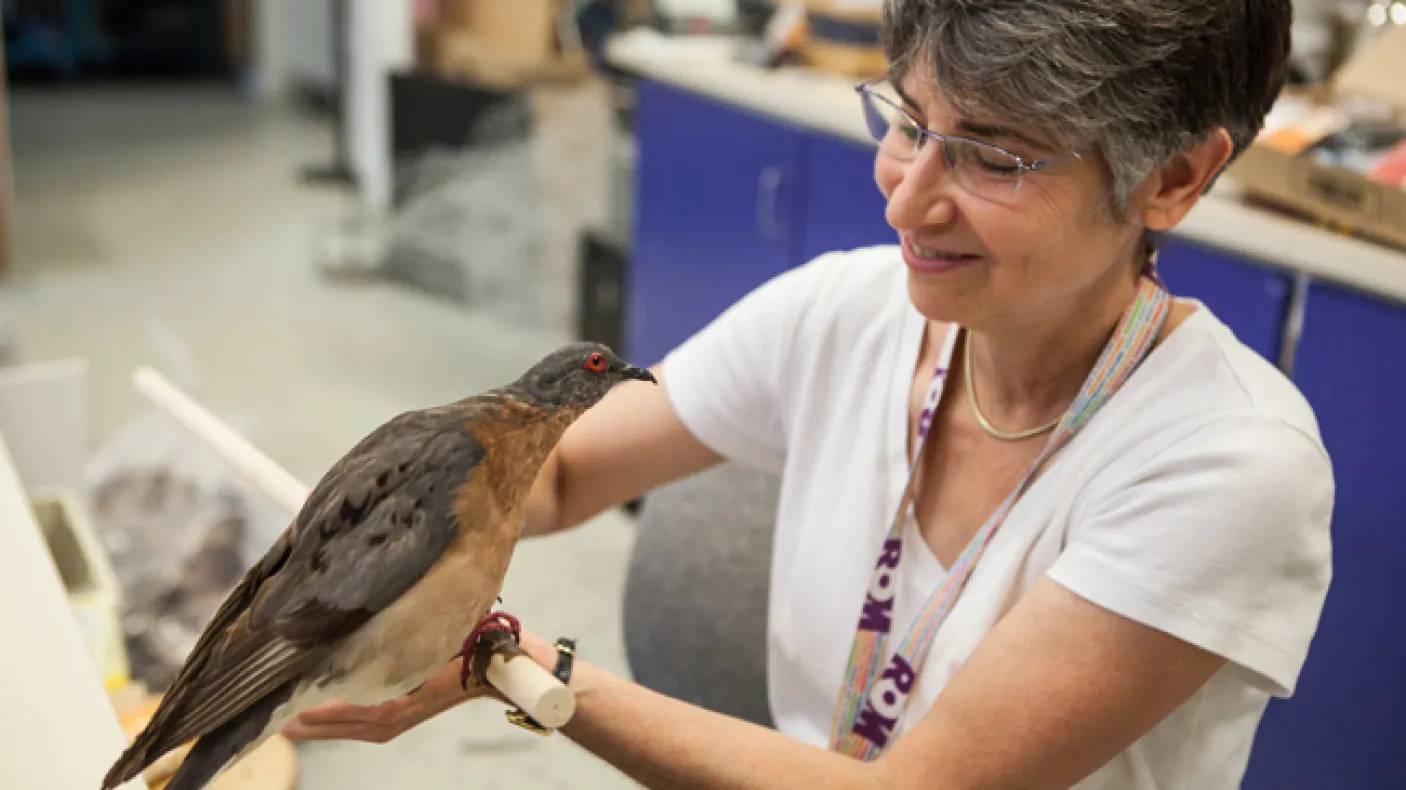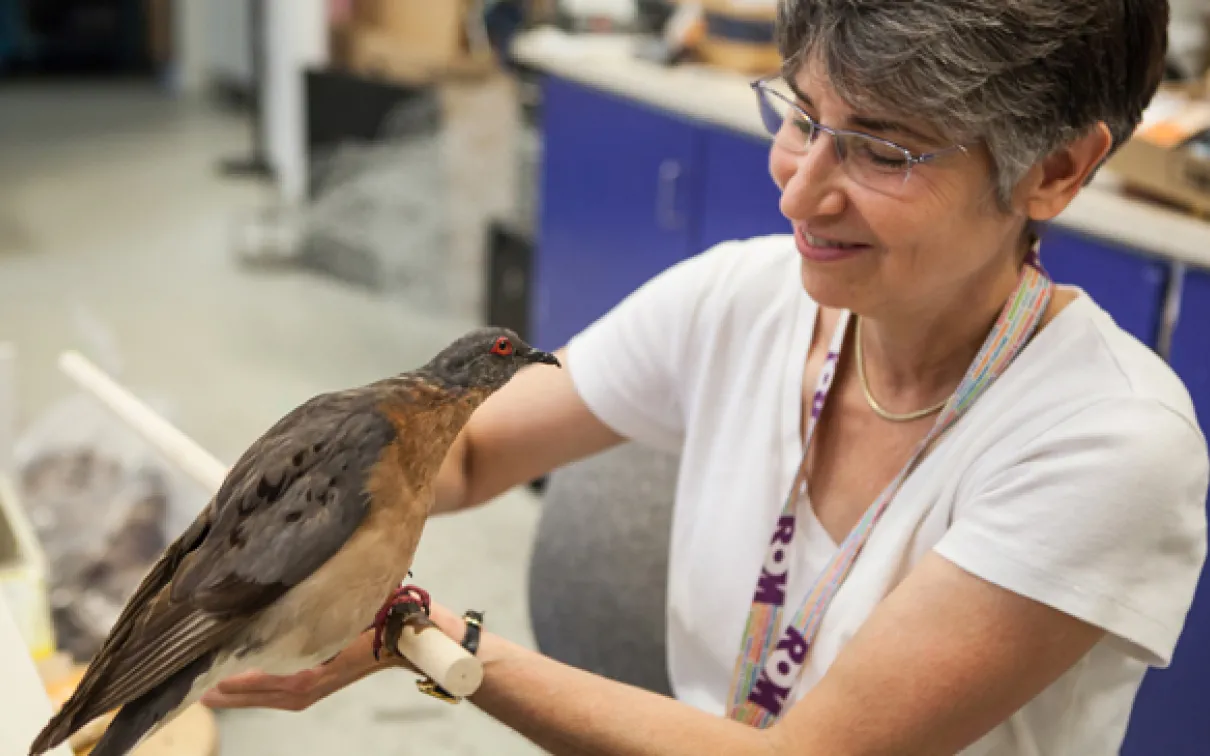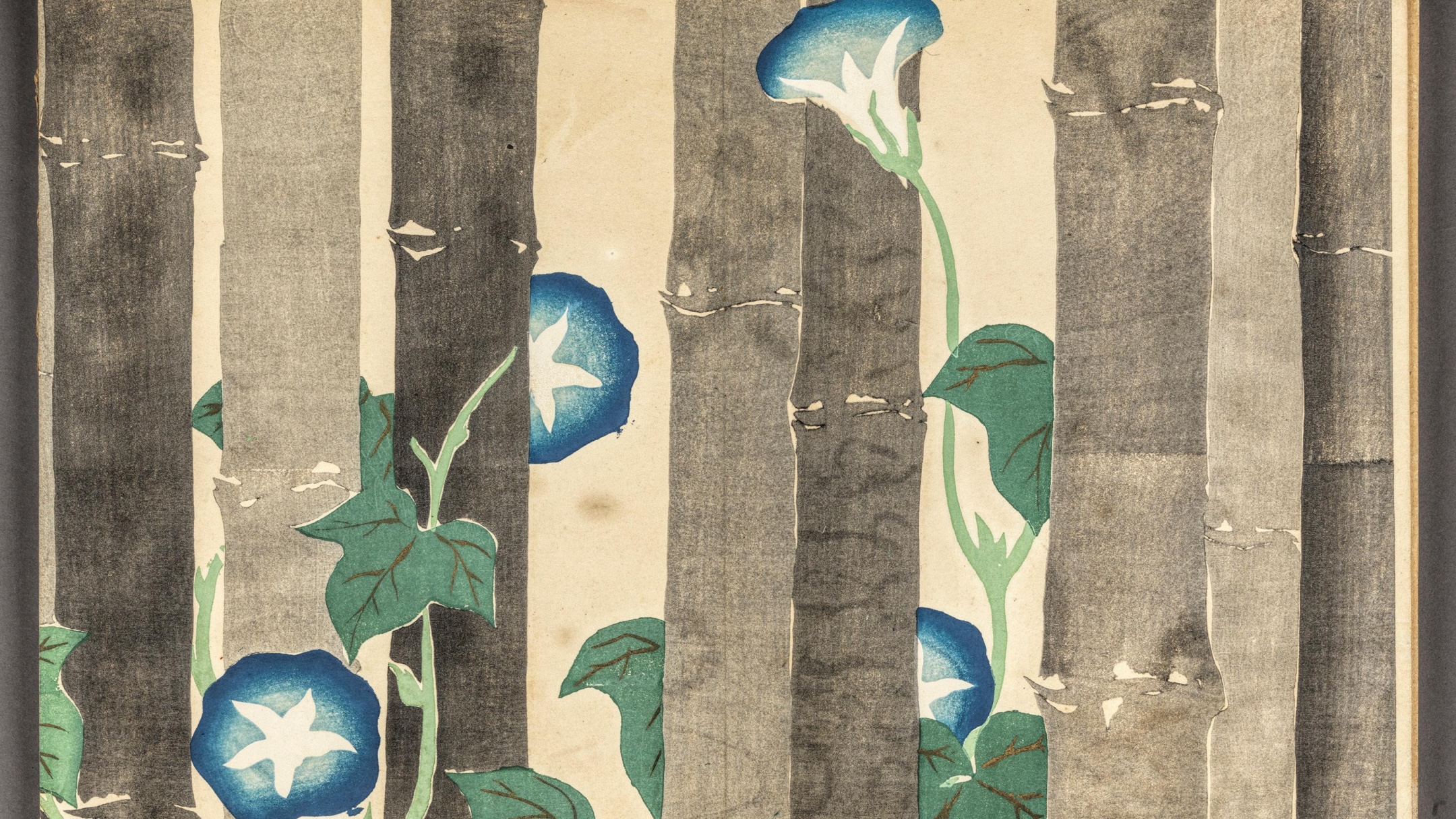Empty Skies: Behind-the-Scenes - Recreating Passenger Pigeon Habitat
Published
Categories
Author
Blog Post
Guest blog post by environmental visual communication student Justine DiCesare, with photos by Vincent Luk
During my summer placement as an environmental visual communication student with ROM Biodiversity, I had the opportunity to meet with the talented ROM technician Georgia Guenther. Georgia is the museum's Exhibit Artist, and her latest project was to recreate a scene from the historical natural habitat of the passenger pigeon in Southern Ontario for the Empty Skies: The Passenger Pigeon Legacy exhibit.

The three flowers that Georgia created by hand are species that were displayed in the original Passenger Pigeon diorama at the ROM between 1935 and 1980. The three species are the trout lily, hepatica (liverwort), and bloodroot, all of which are typical wildflowers found in the spring throughout Southern Ontario.

A lot of research, skill, and precision are involved in creating all the delicate components of these flower models, while also making sure they are accurate representations of the real species we can see in the forests and woods around us every spring. Each flower part gets the same level of detailed attention.
For example, to create the leaves, Georgia must:
1. Collect, measure, and photograph living specimens in the field
2. Take the collected leaves and place them on a tray of wet sand. She then pours plaster over the leaf to capture its shape and contours as an impression cast.
3. When the plaster is hardened, pour hot plastic sheeting around the plaster cast and cut the final leaf shape out of the plastic.

These beautiful detailed model wildflowers are made from a variety of material:
- Flocking: polyester dust in different colours used for pollen
- Wax: used to create the structure of the flower model
- Plastic Monofilament: used to make the stamens
- Paper: white paper is colours to create flower petals


Want to see a bit more of Georgia's workshop? Take a peek inside her world in the following video:


